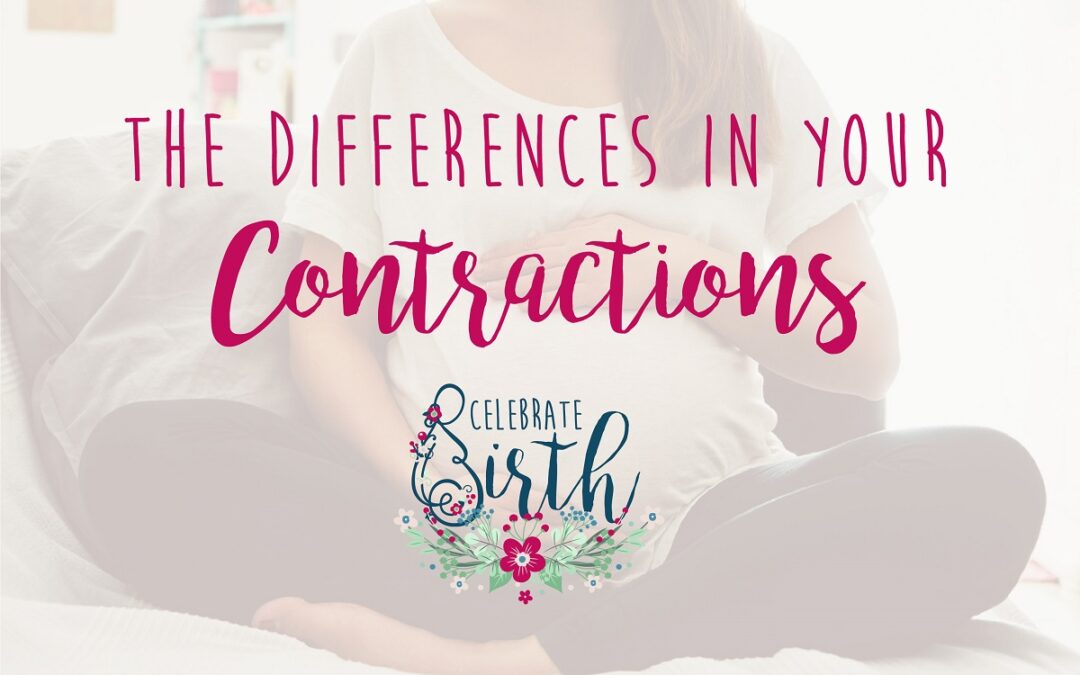At this point in pregnancy, you are probably experiencing your fair share of aches and pains. Once contractions start, however, it can throw you for a whole new loop. As early as the second trimester, you might start to experience some tightening in your abdomen. Often, this is nothing to worry about. After all, your body is knitting together a perfect little baby, and it is only natural that it wants to getting ready for the rest of this process. These practice contractions, also known as Braxton Hicks, might feel powerful at times, and as you get into full-term, it can be pretty difficult to differentiate between these and real contractions.
Braxton Hicks
Named after a 19th century doctor, Braxton Hicks contractions are where you feel your uterus tightening for anywhere between 15 to 90 seconds. Your stomach might suddenly feel oddly hard, and at times, it can constrict so much that your adorable bump looks almost pointy. These contractions are often uncomfortable rather than painful, but they can deliver a lot of power, especially throughout the third trimester. They are irregular and will not increase in intensity unlike actual contractions. The easiest way to determine whether or not you are experiencing a labor contraction is by checking to see if you can alleviate it. While a Braxton Hicks contraction will let up, an actual contraction will hit you full-force, and once it hits you, it’s not going to stop.
How to Ease a Braxton Hick
Drink water – You are likely tired of hearing how you need to guzzle water throughout pregnancy, but it really is important! Sometimes, Braxton Hicks are caused by dehydration, and the best way to relieve it is to drink a glass or three of water.
Switch positions – Being active can be another trigger of Braxton Hicks. If you feel one coming on, you can sit or lie down. This will typically settle things down enough to stop the pressure.
Get moving – While it might seem like this contradicts the previous point, it’s still worth a shot. If you are already sitting or lying down, getting up and taking a small walk can help the contractions to stop.
Take a bath – You have every right to use this time to relax. A warm bath is fantastic for Braxton Hicks because it gets your muscles to take a break for a bit and stop contracting.
Drink something warm – an herbal tea or a warm glass of milk has also been found to work at stopping these contractions.
Real Contractions
Unlike Braxton Hicks, a real, baby-bringing contraction will increase both in frequency and in intensity. These contractions are often preceded by other symptoms of labor. Spells of diarrhea,experiencing bloody show, and intense backaches are all signs that the baby is ready to make a grand entrance!
At the beginning, labor contractions can feel similar to period cramps (remember those?). You might also feel lower abdominal pressure or backaches, and the pain sometimes moves from your stomach to your upper thighs. The where isn’t nearly as important as the when, however. If the contractions are becoming regular enough to time, chances are you’re experiencing the real thing! At this point, it is a good idea to give your midwife a call and get everything in order. Once they reach an interval of 5-7 minutes, get yourself in a car and head on over to your birthing center!
Getting through contractions
Relax: With actual contractions, the focus becomes less about getting them to stop and more about getting through them. Even if you’re a superwoman determined to get things going as fast as possible, take some time and relax during early labor. Maybe put on a show you have been meaning to watch and surround yourself with pillows to get comfortable. Resting at the beginning will allow you to have more energy for the hard work that is about to come.
Stay active: As things start to pick up, move around. Changing positions can help immensely during labor. Once you’re at the birthing center, walking around or bouncing on a birthing ball will help as things progress.
Soak it up: Water can be the best relief. Talk to your midwife to see when you’re able to take a hot shower or get into the birthing pool. It’s possible she will want you to wait a bit because water can slow things down. Once you have the a-ok, it will relieve the pressure and help you relax even more.
Talk to an expert: Your midwife and doula will both have a wealth of advice for getting through the contractions and can offer natural pain remedies. The contractions might get tough, but you’re tougher, and you have a team to get you through this!
If you believe you are experiencing actual labor contractions, especially before 39 weeks, give your midwife a call. She will let you know if this is cause for concern and will give you advice or refer you for help. And if you are still having troubles telling the differences in contractions, do not hesitate to reach out to us at Celebrate Birth! We have plenty of experience and would love to give you the answers you need.

